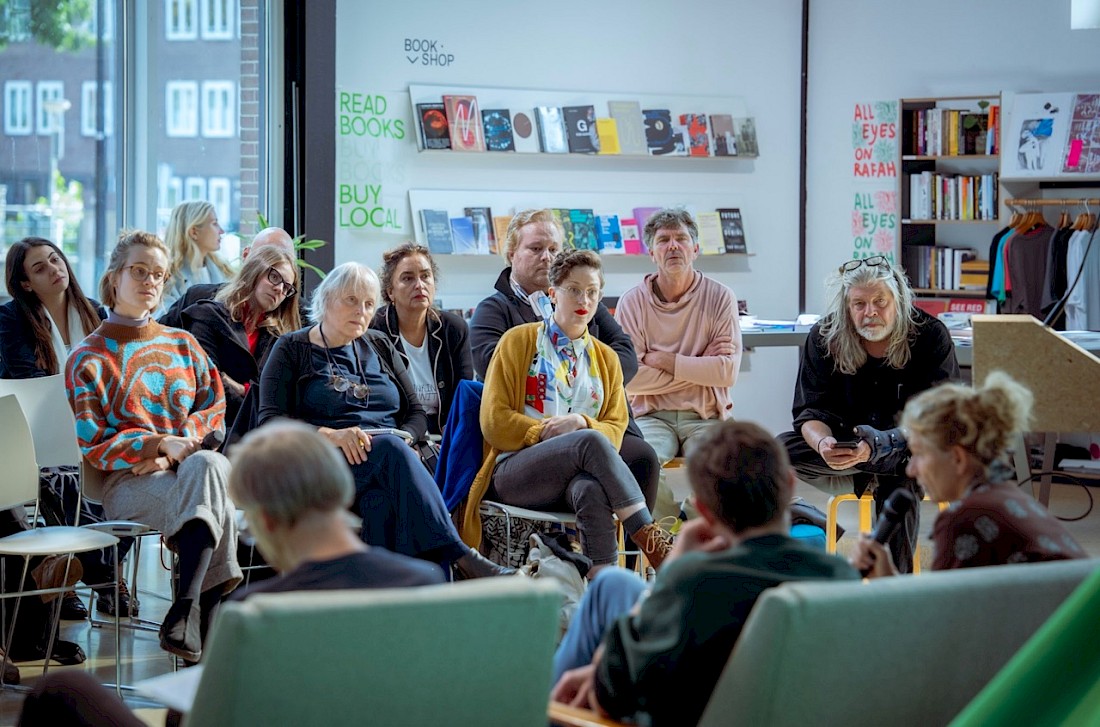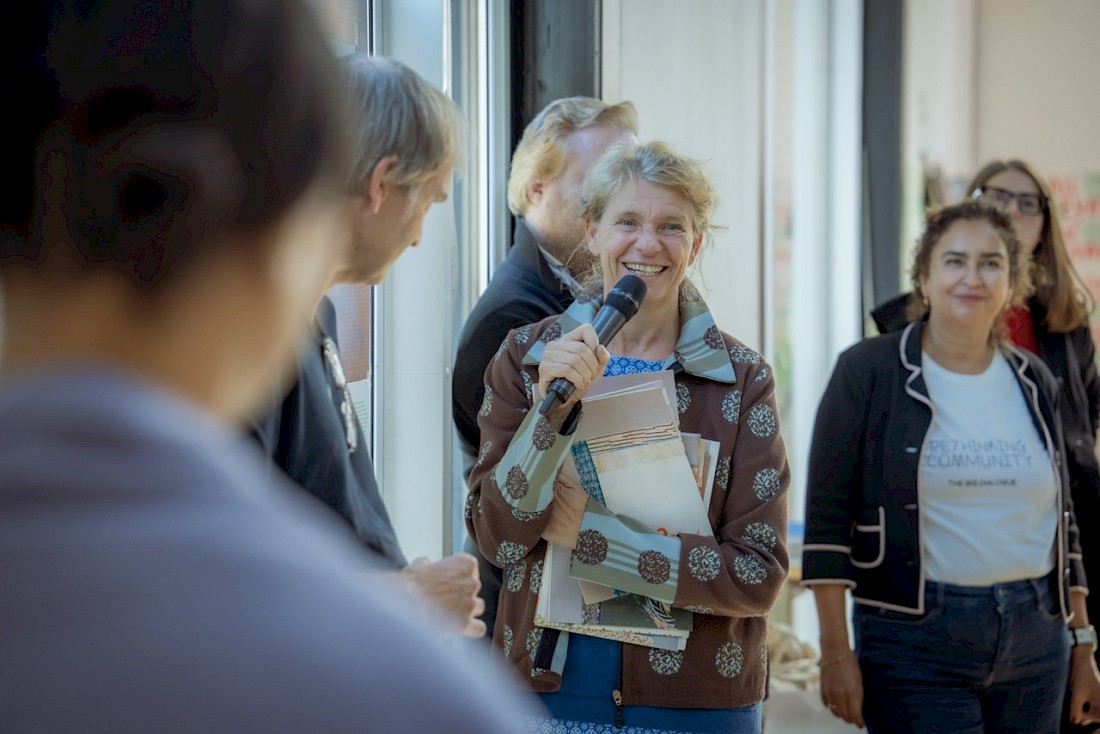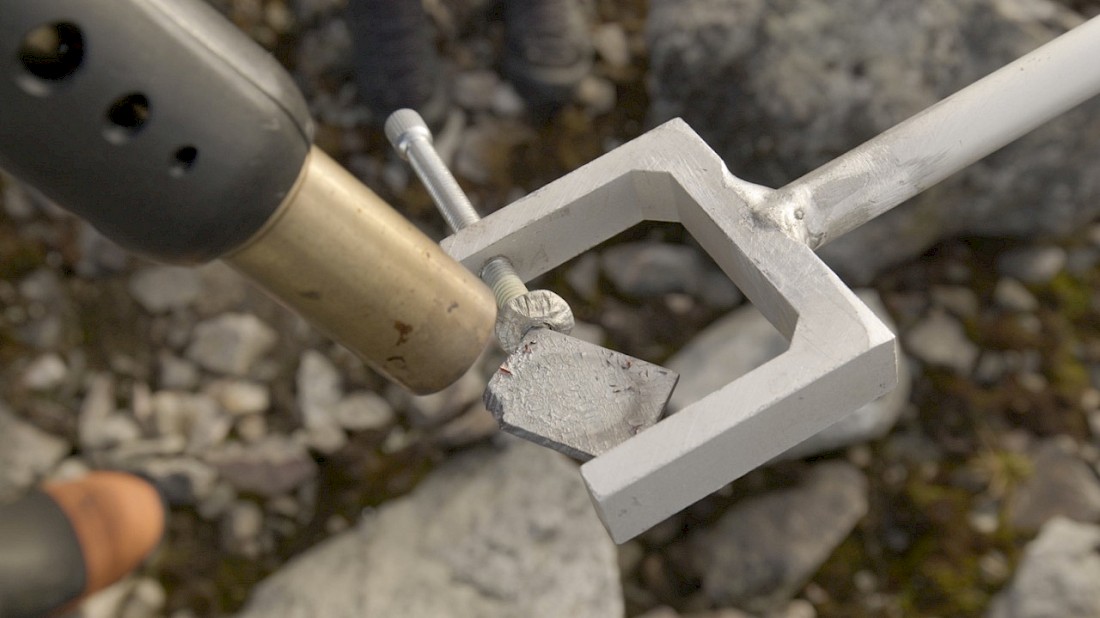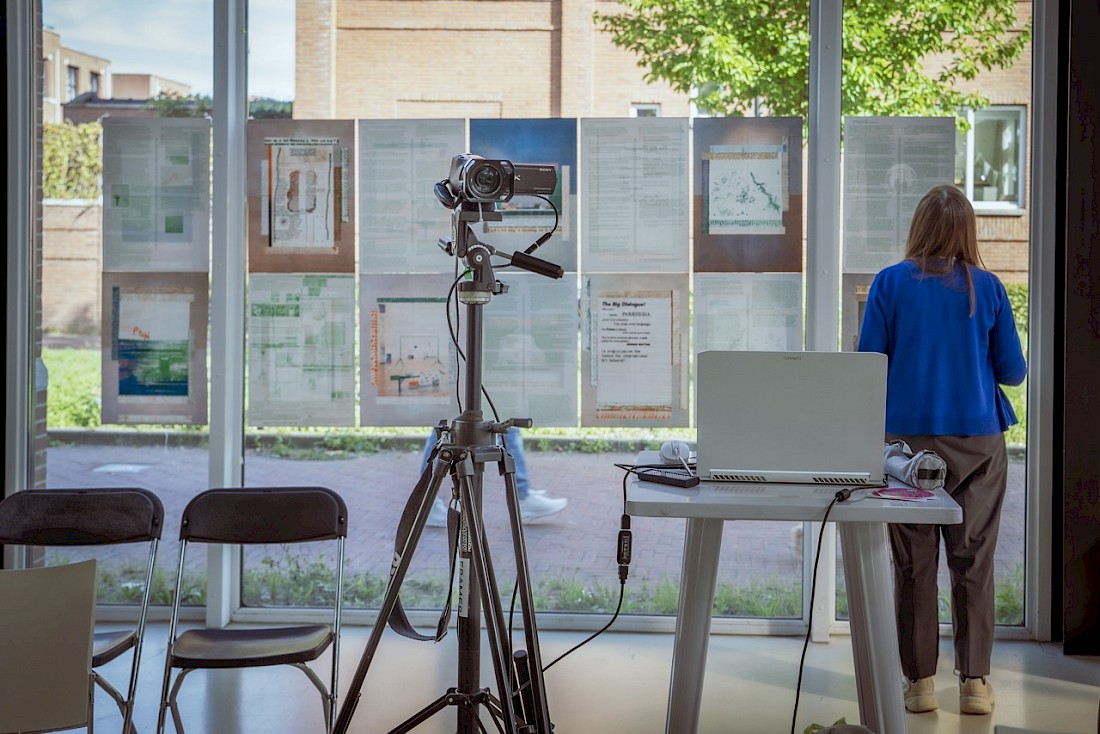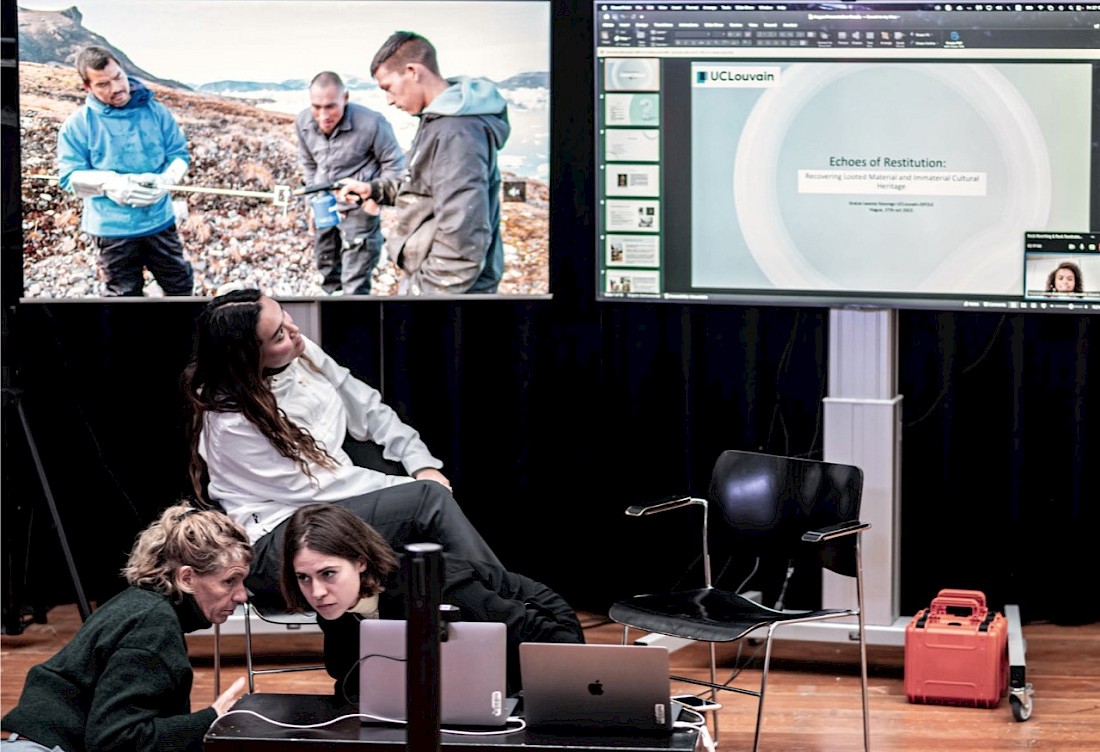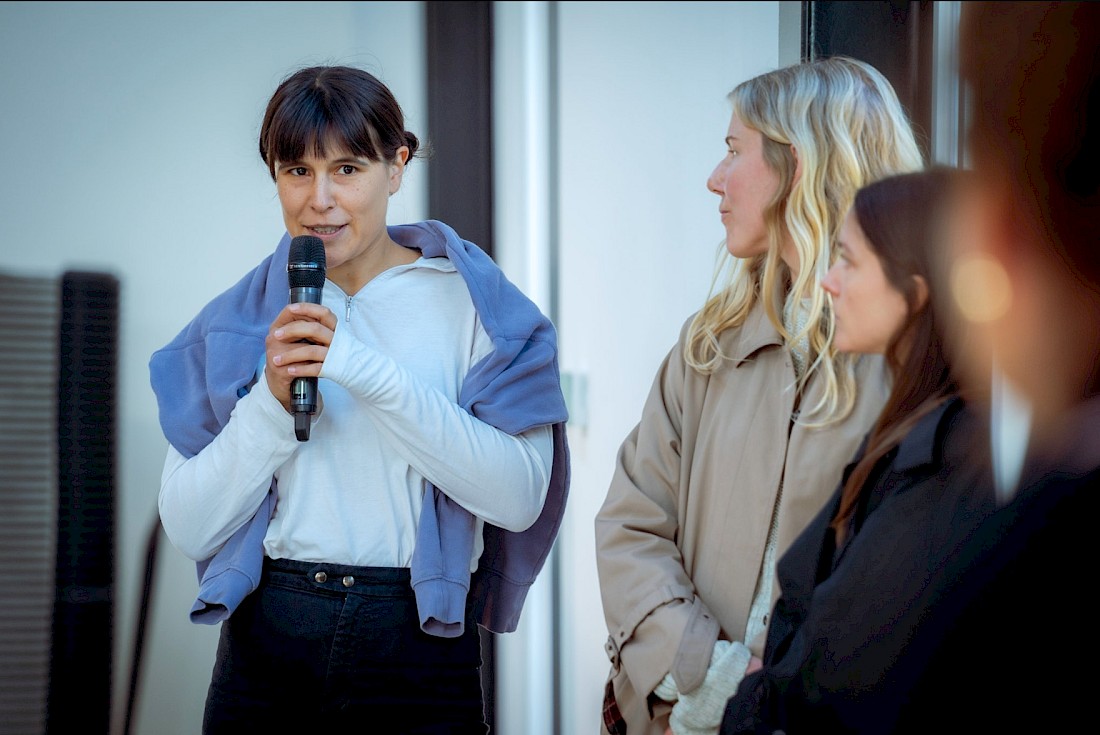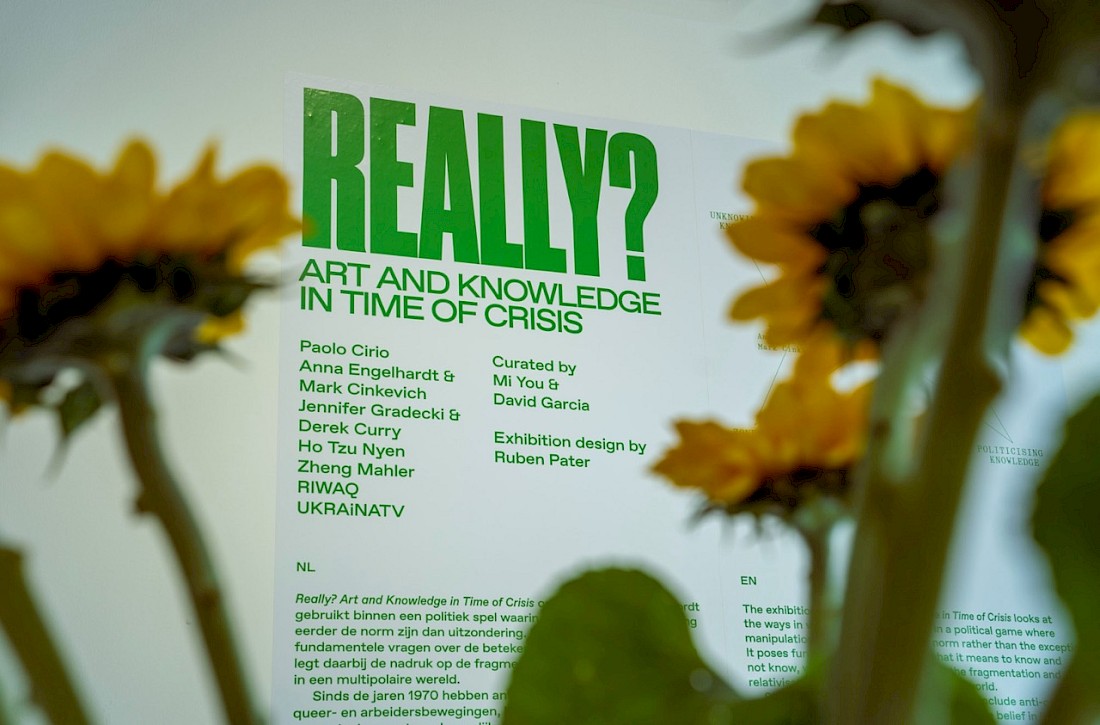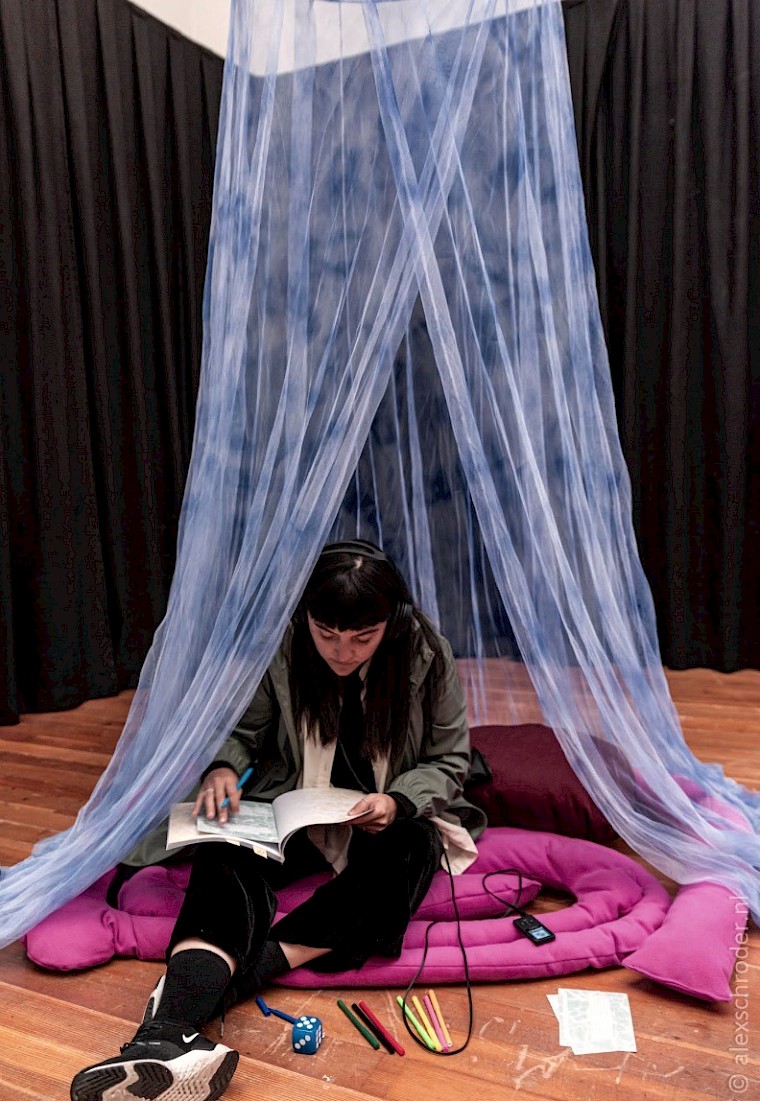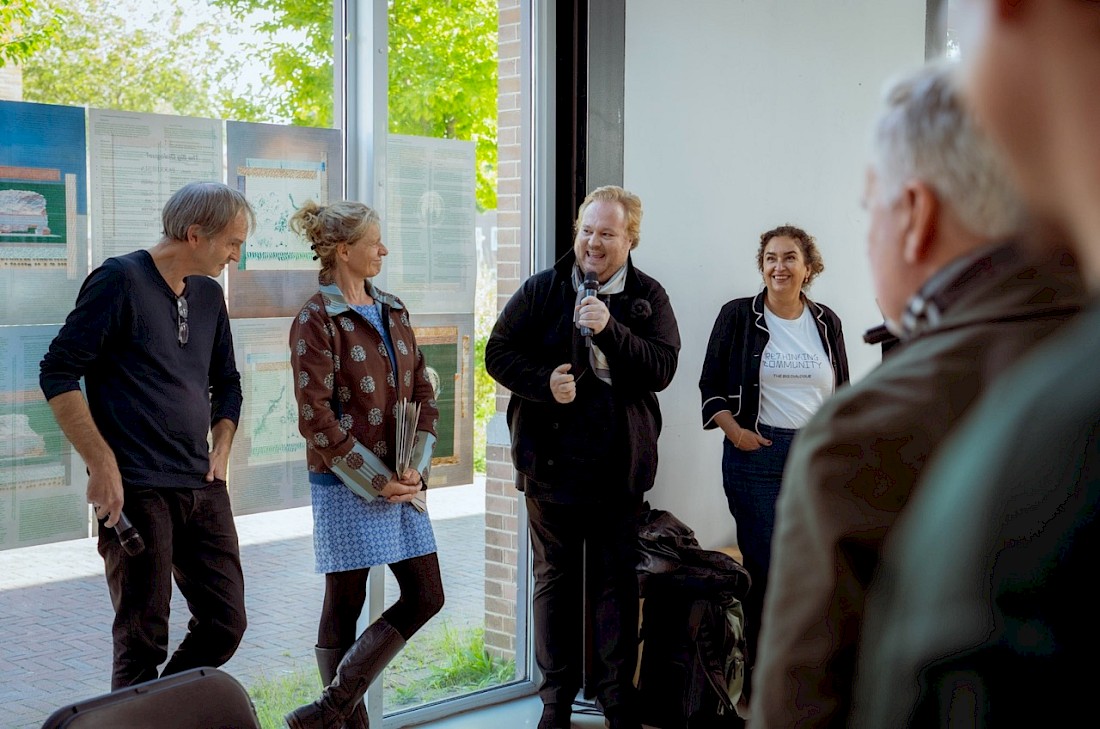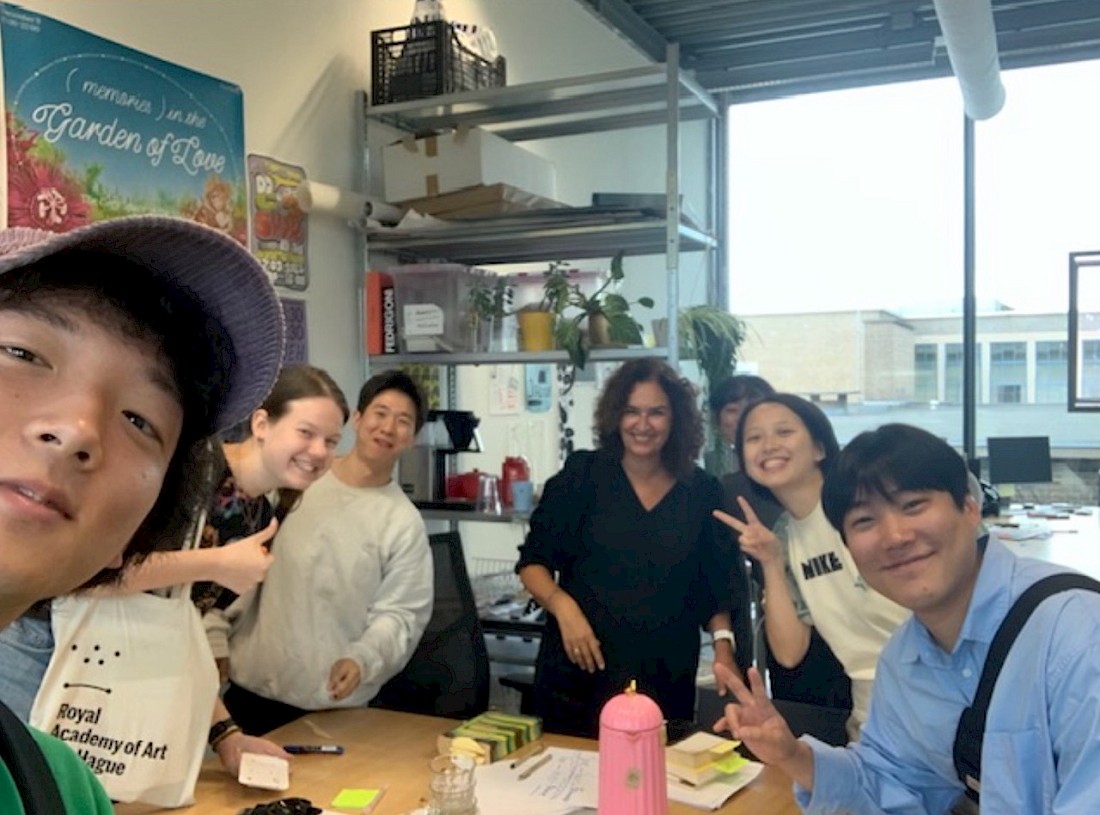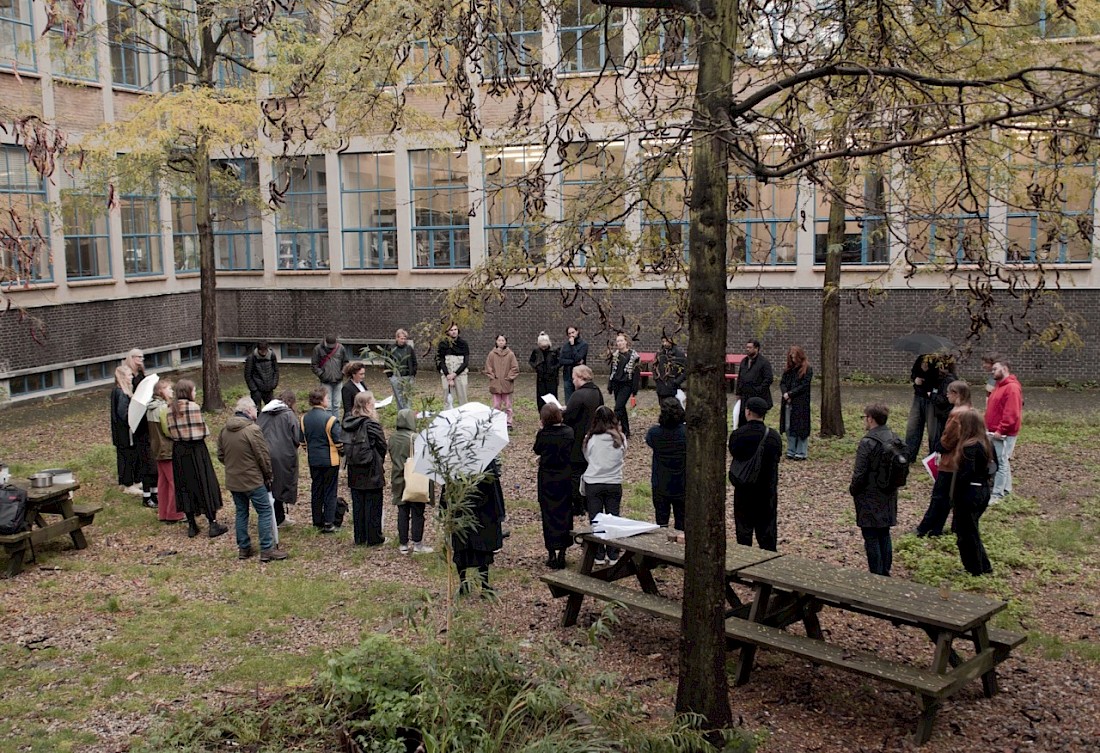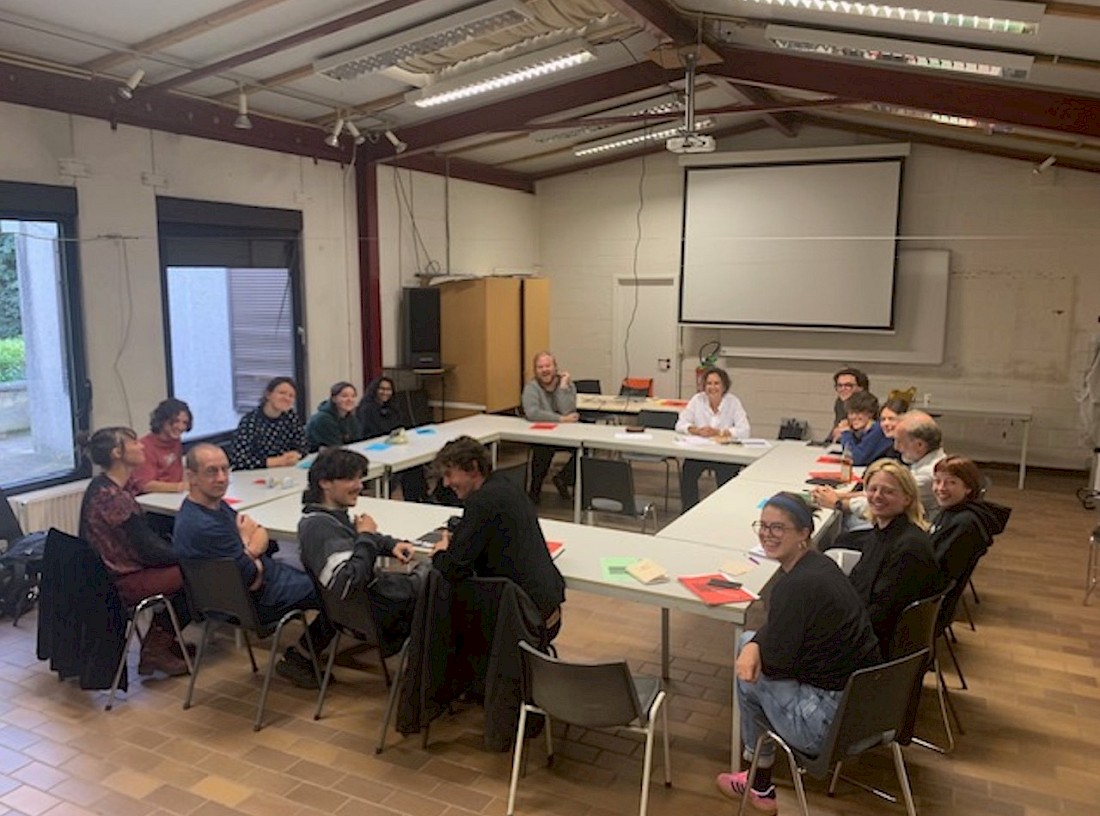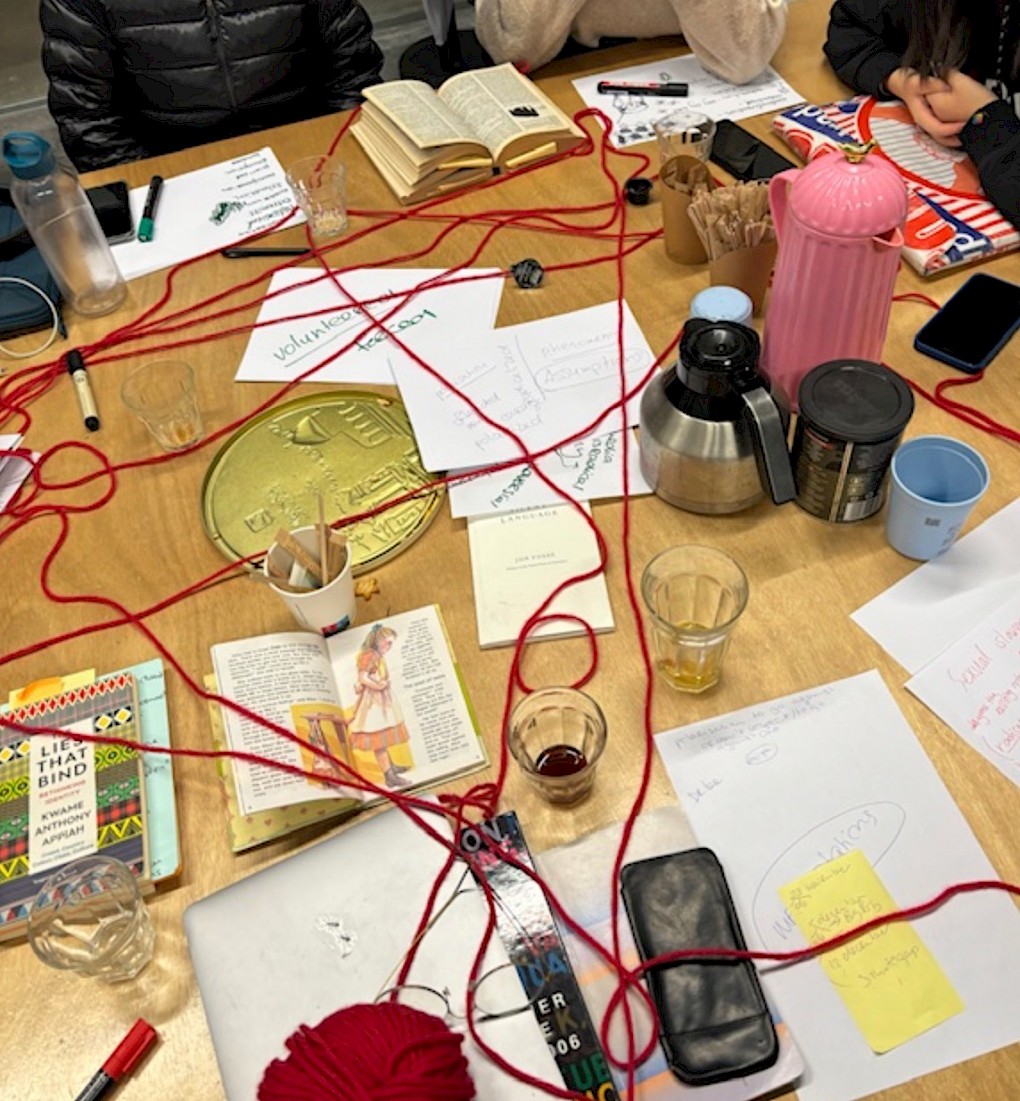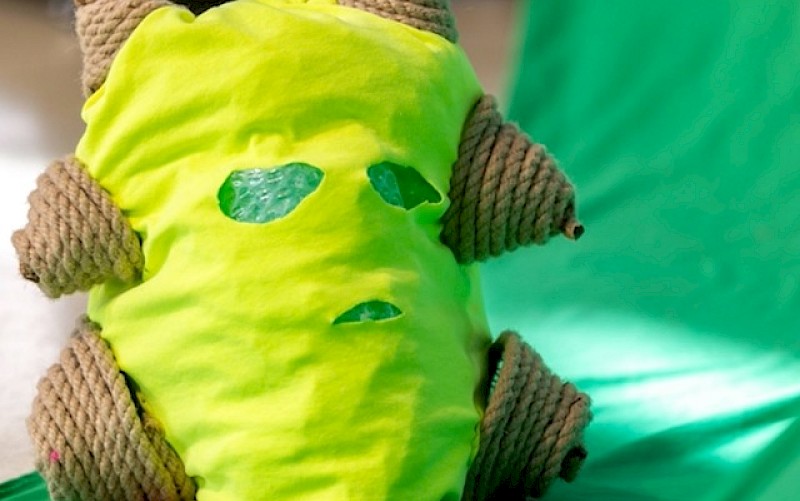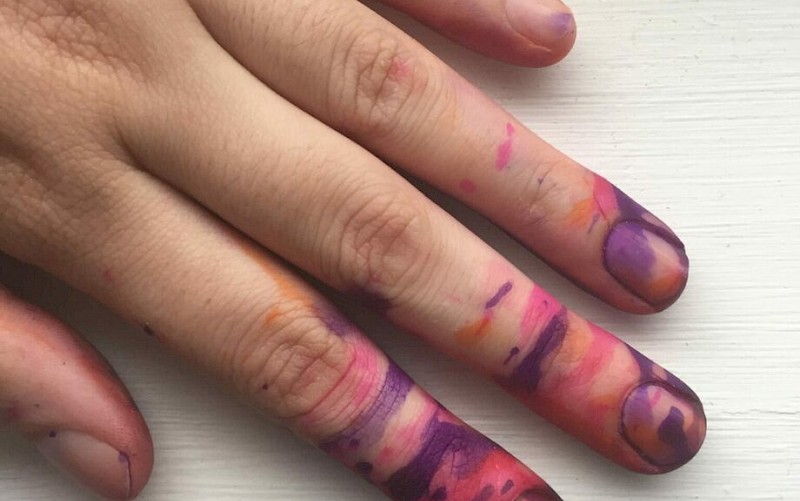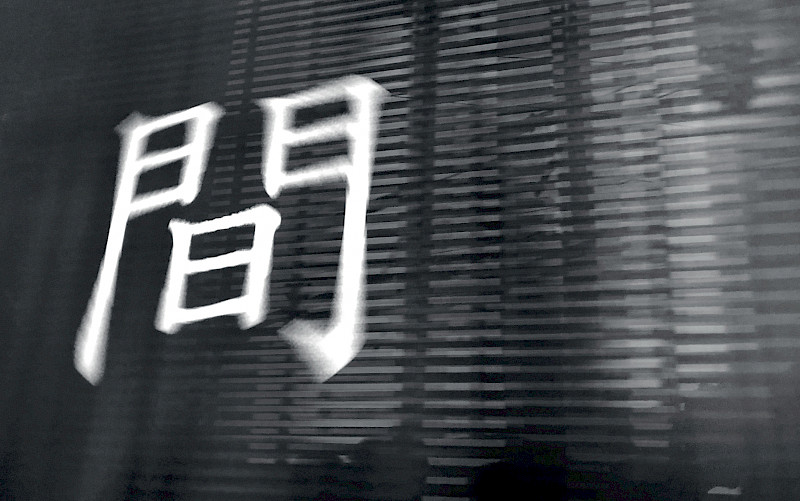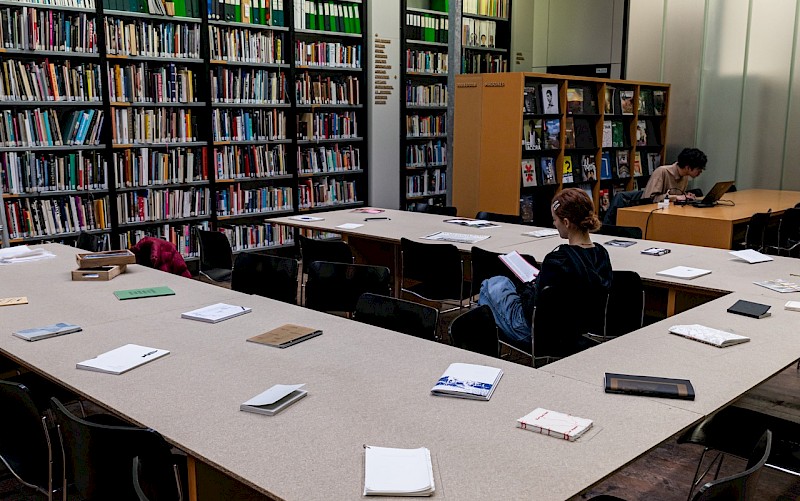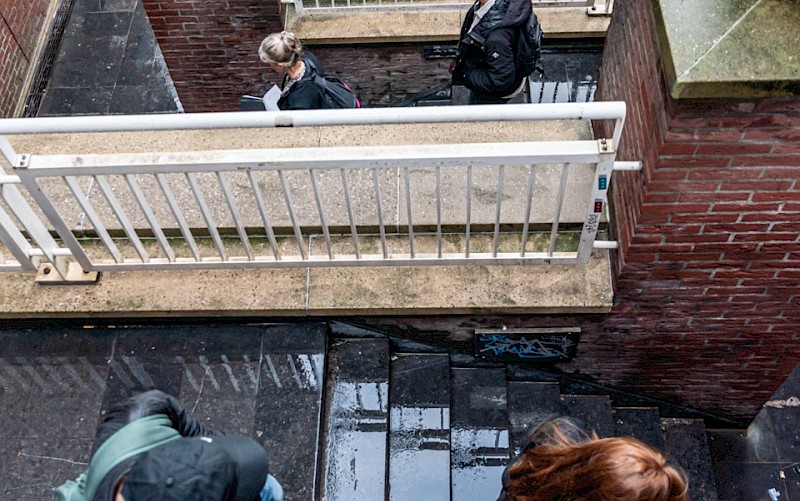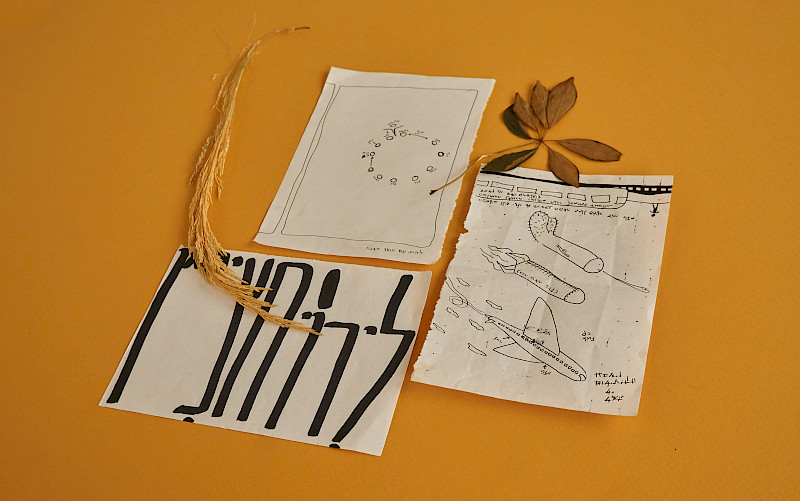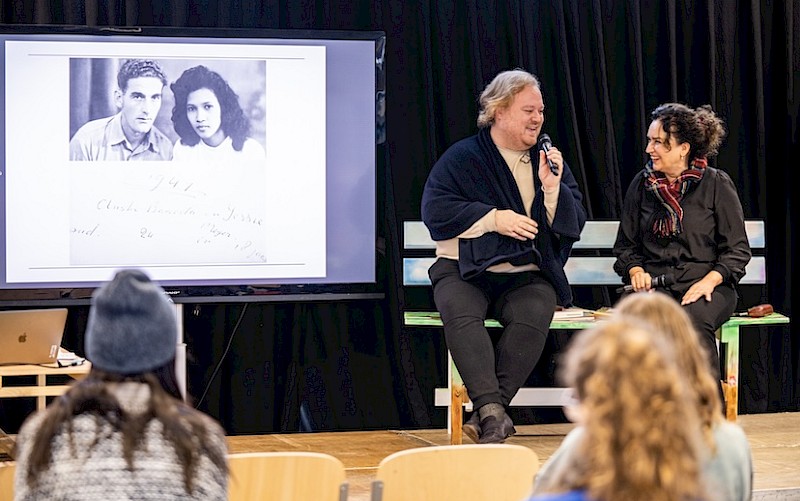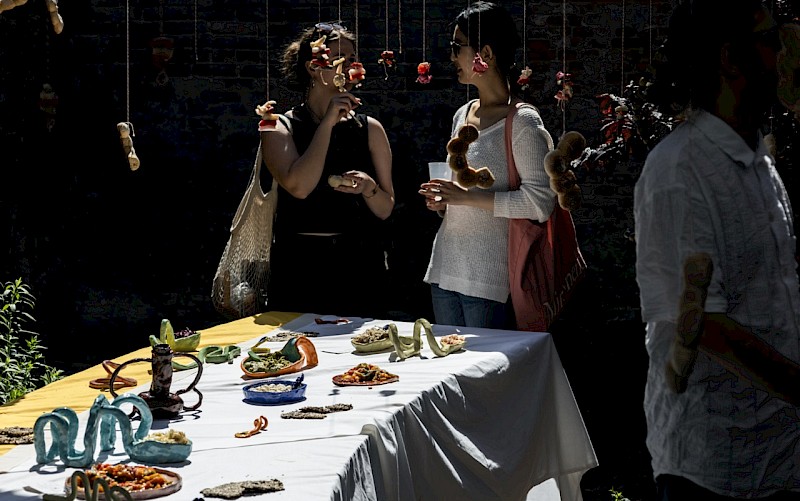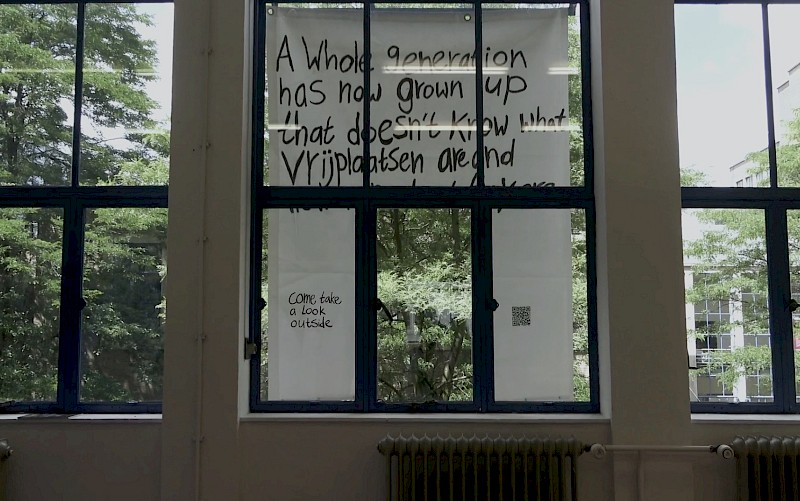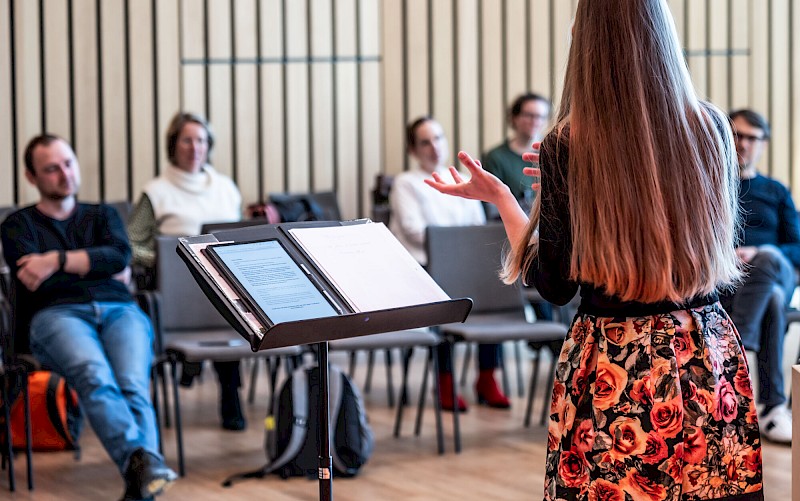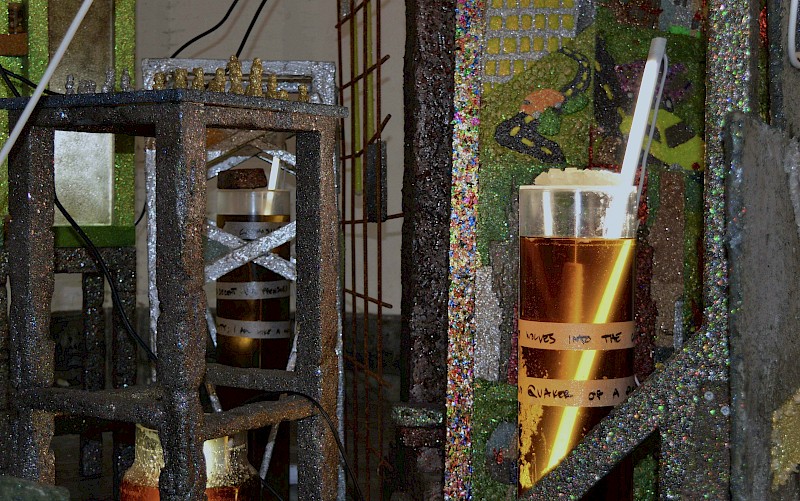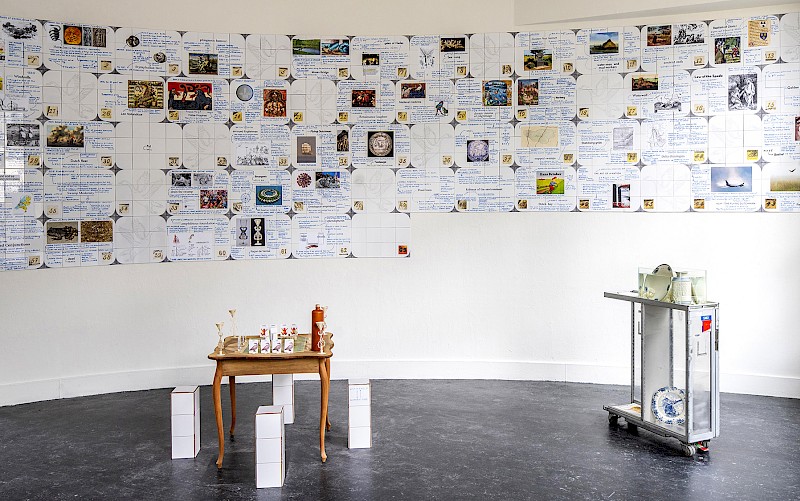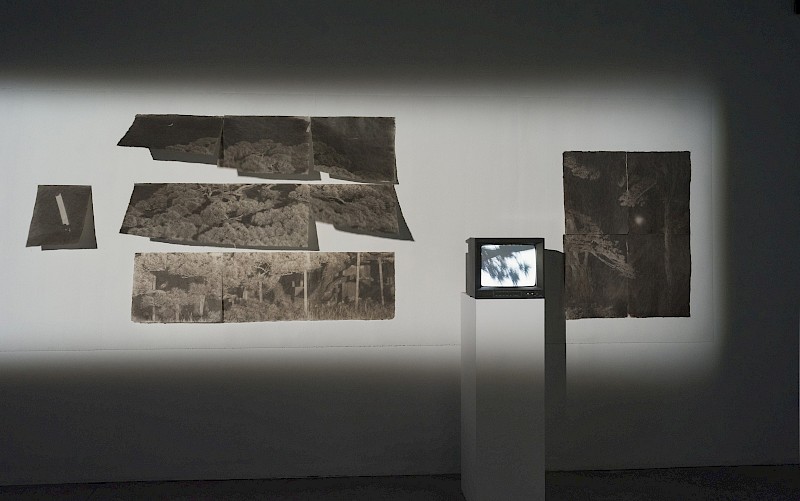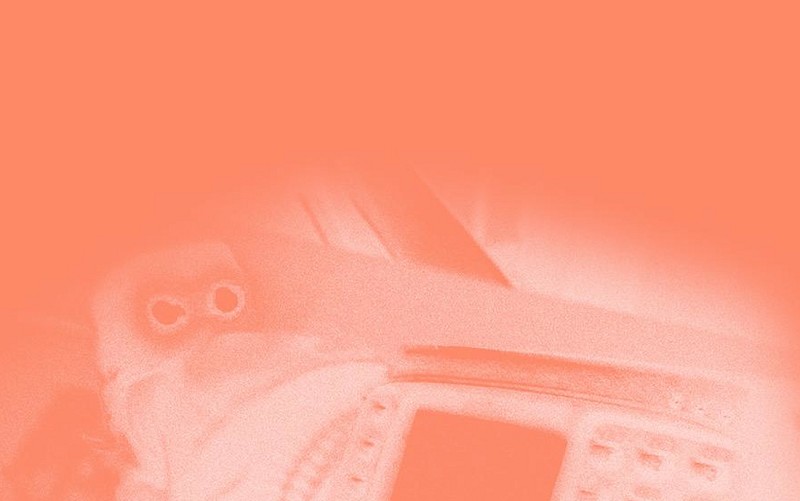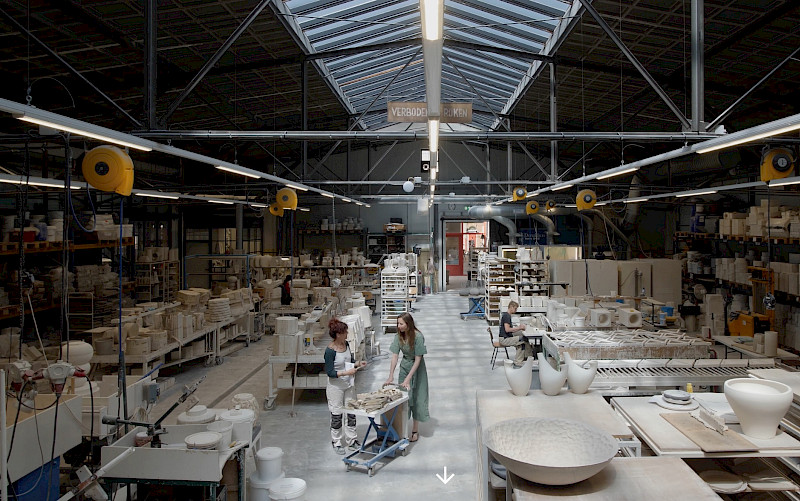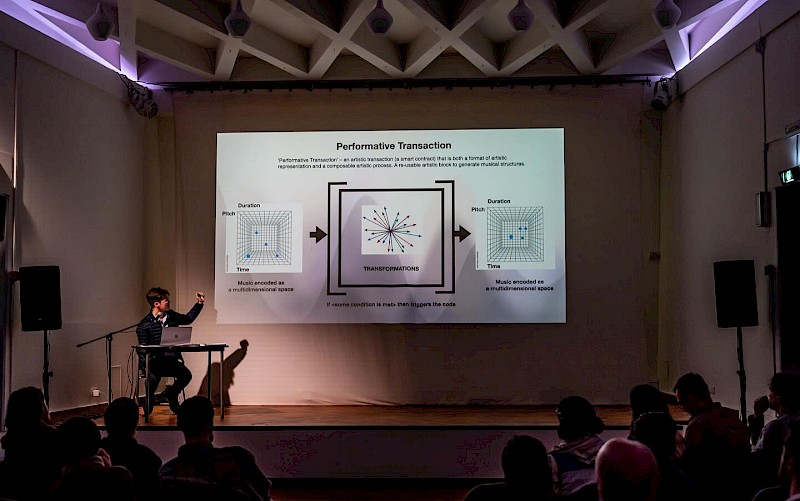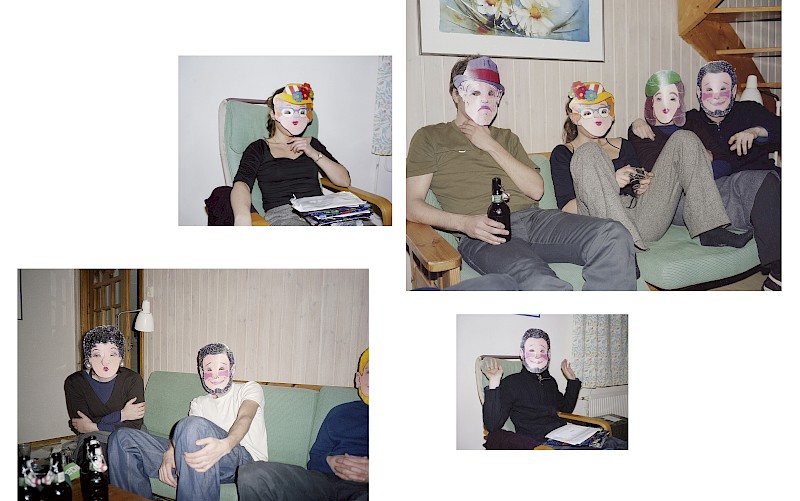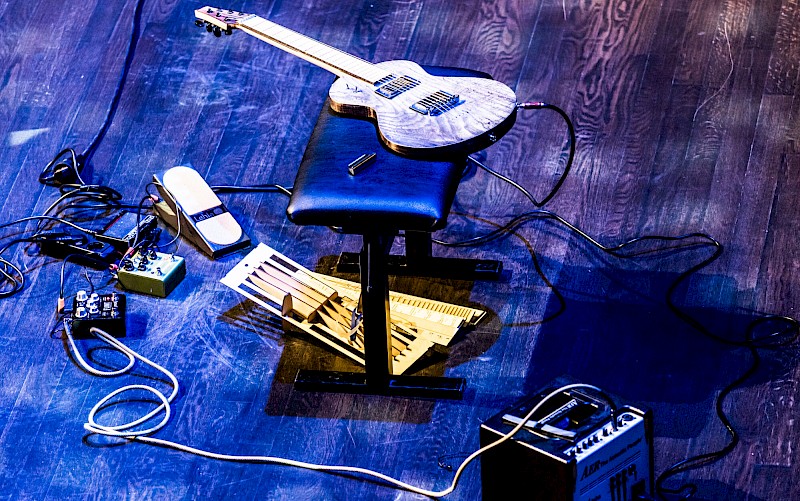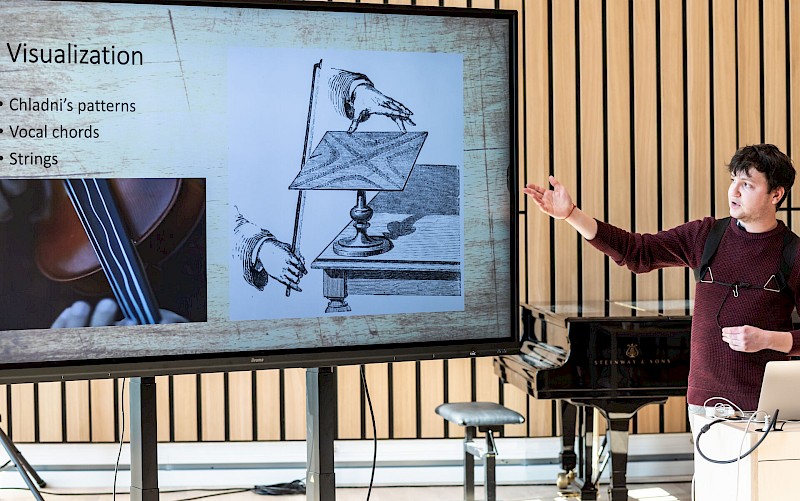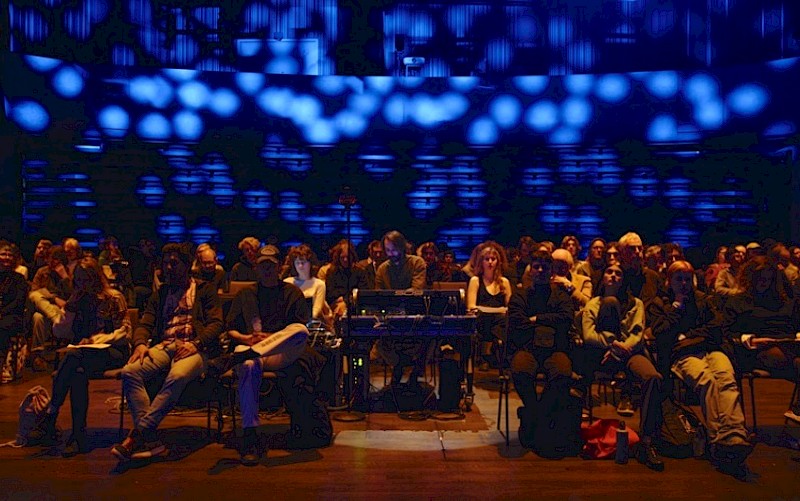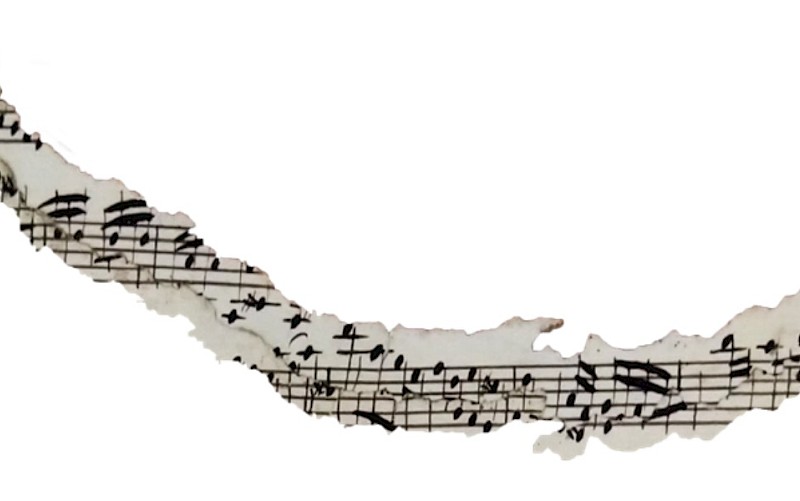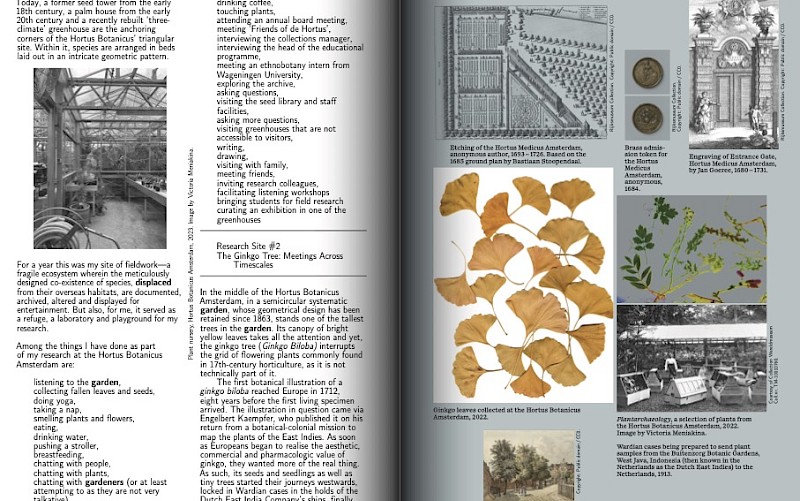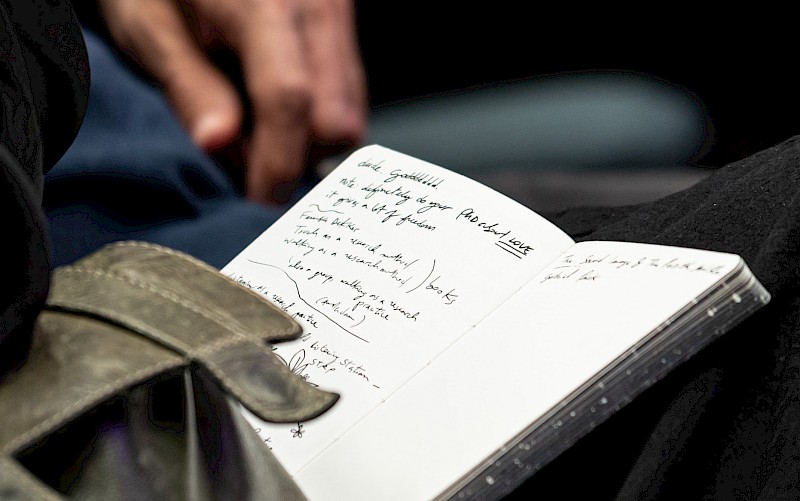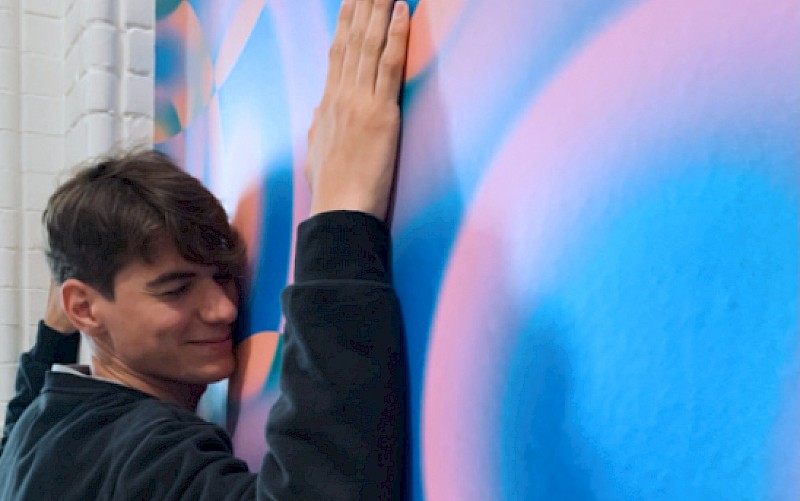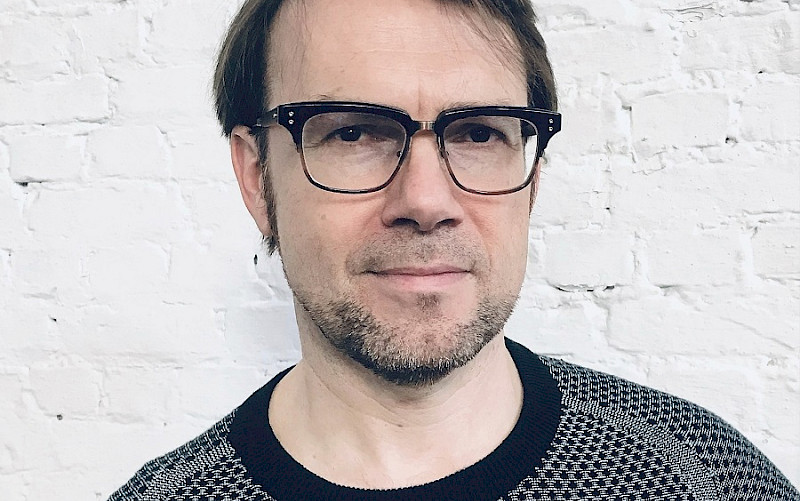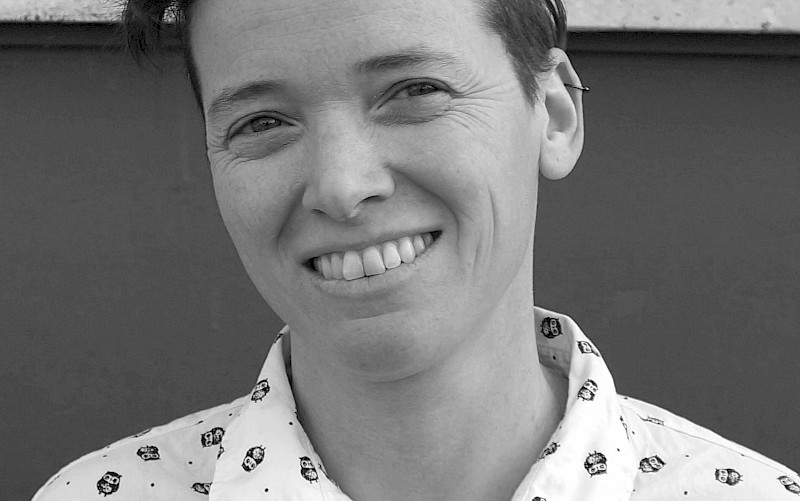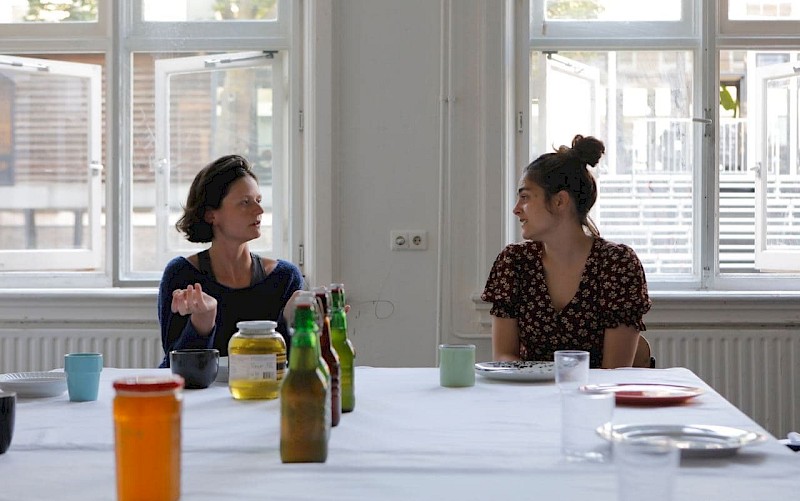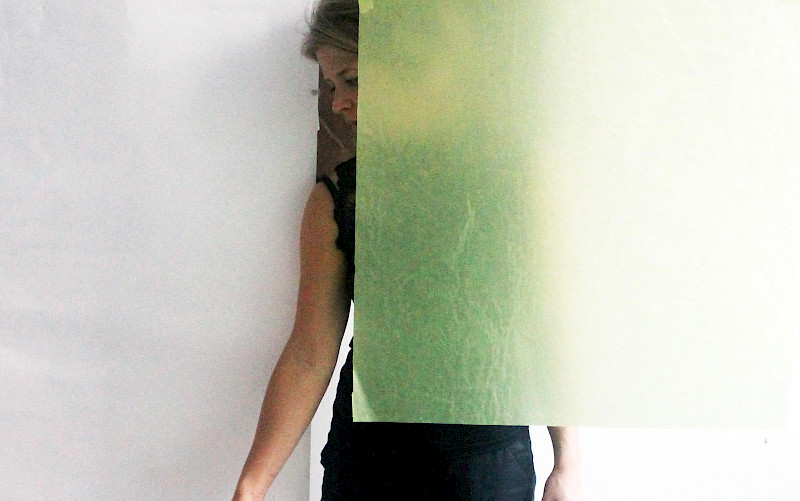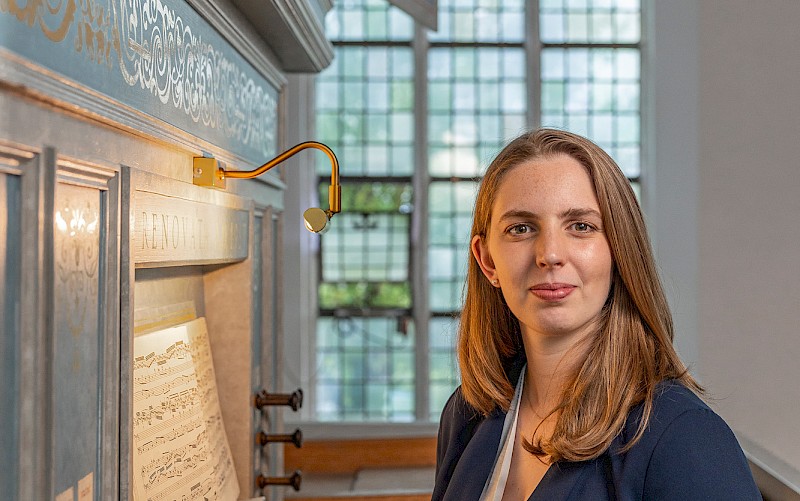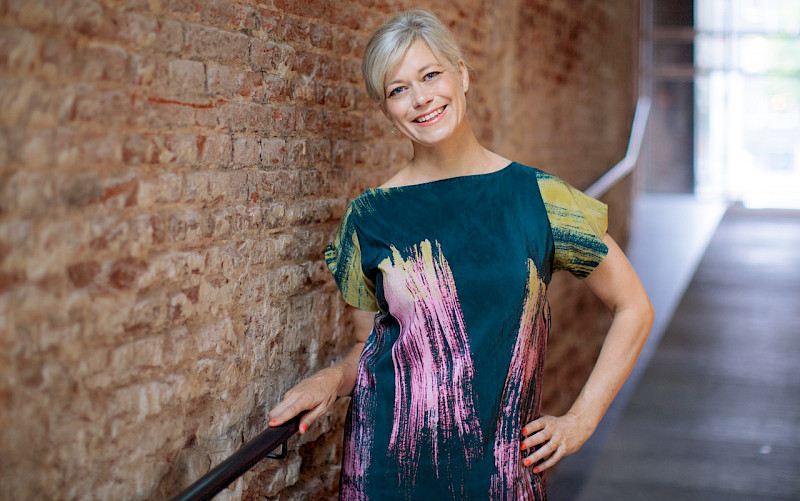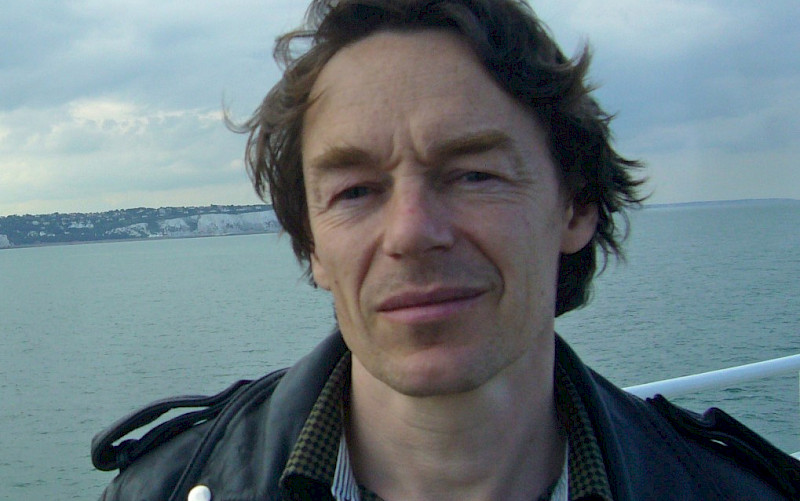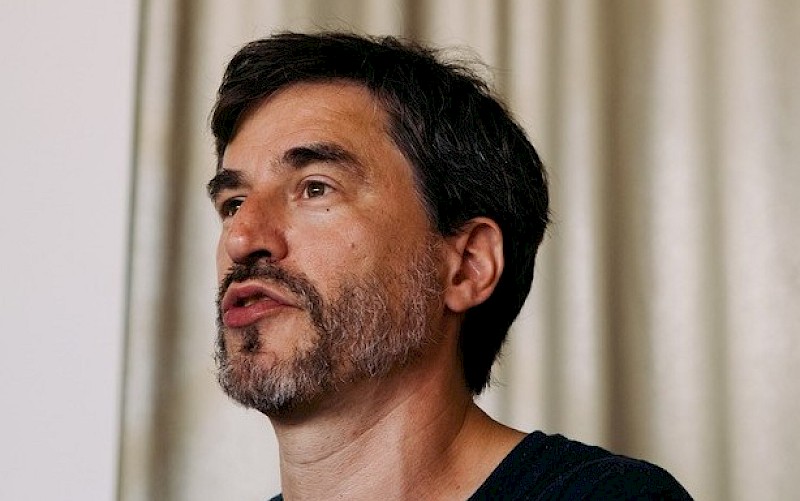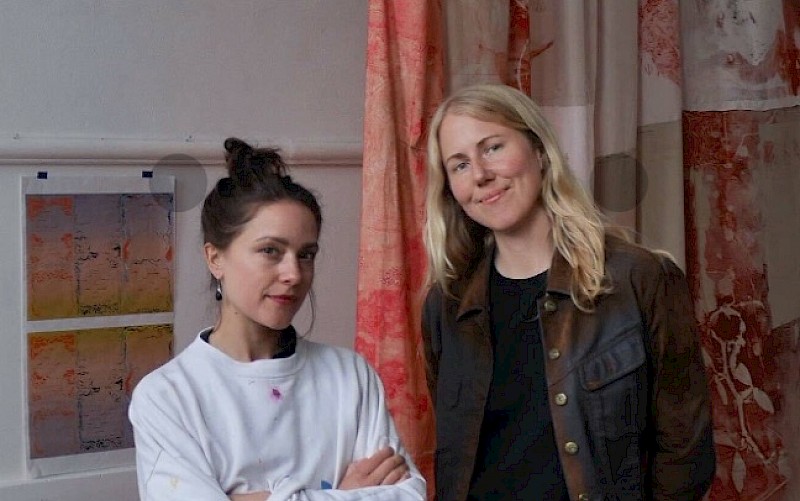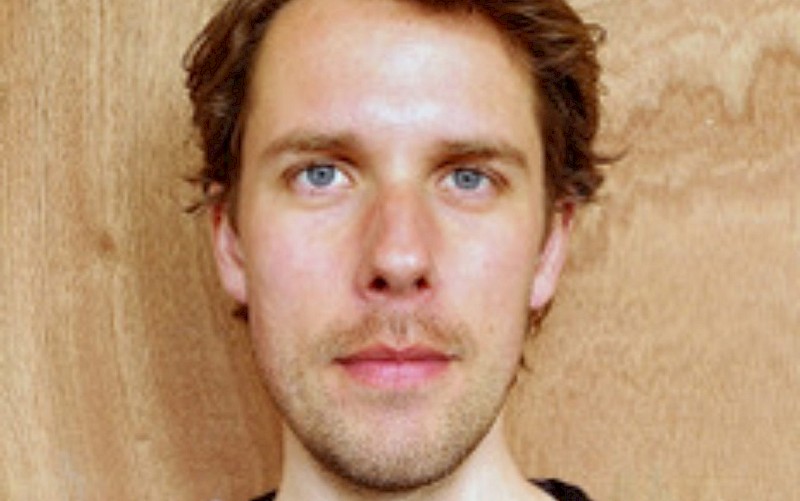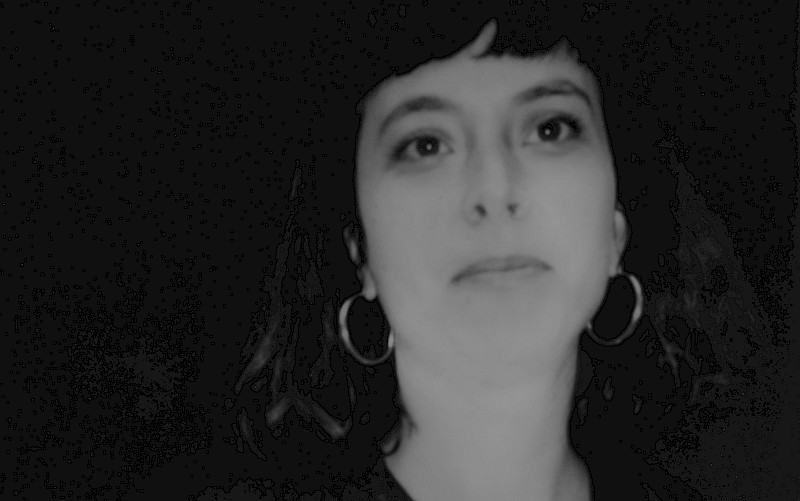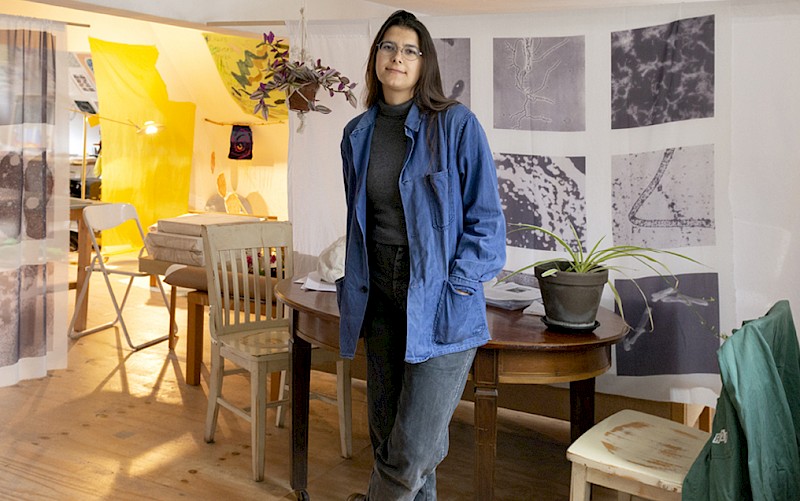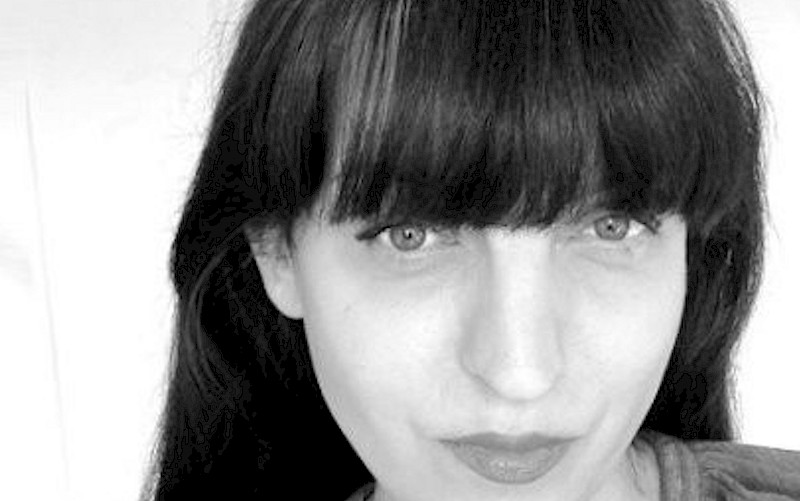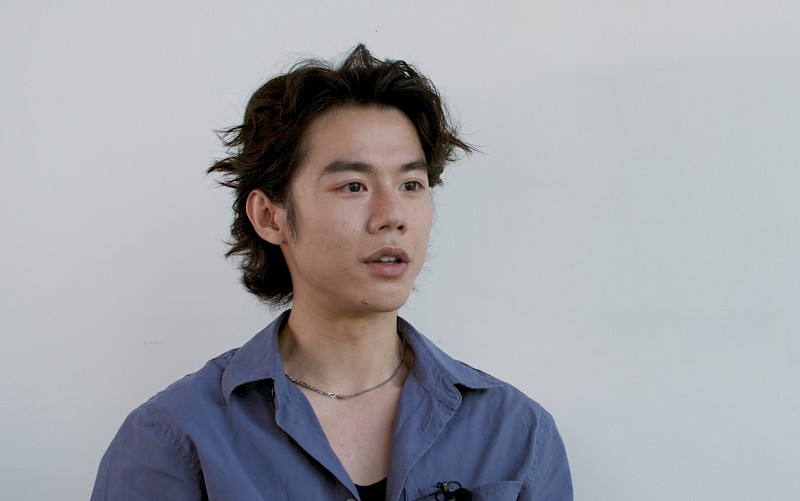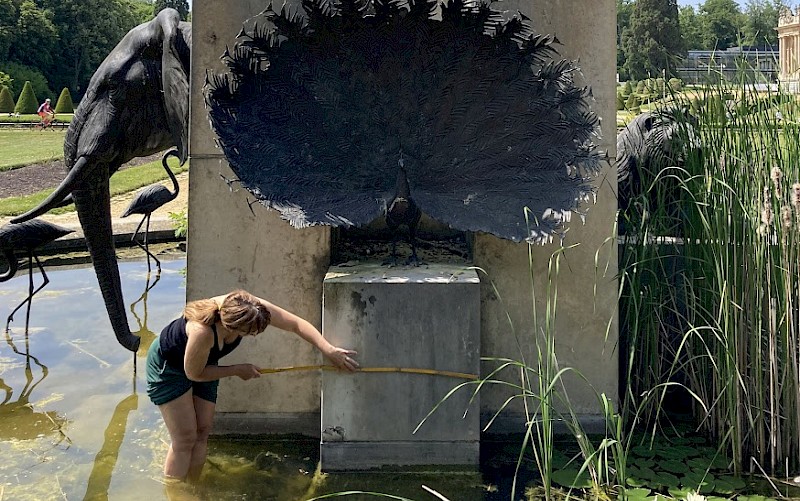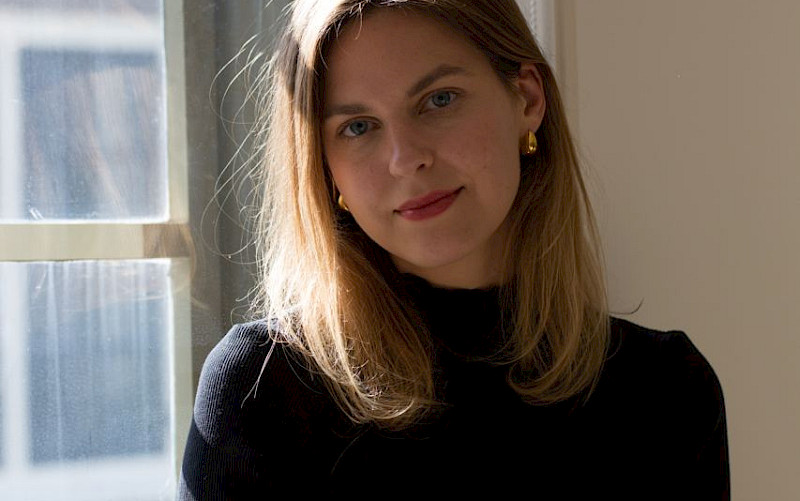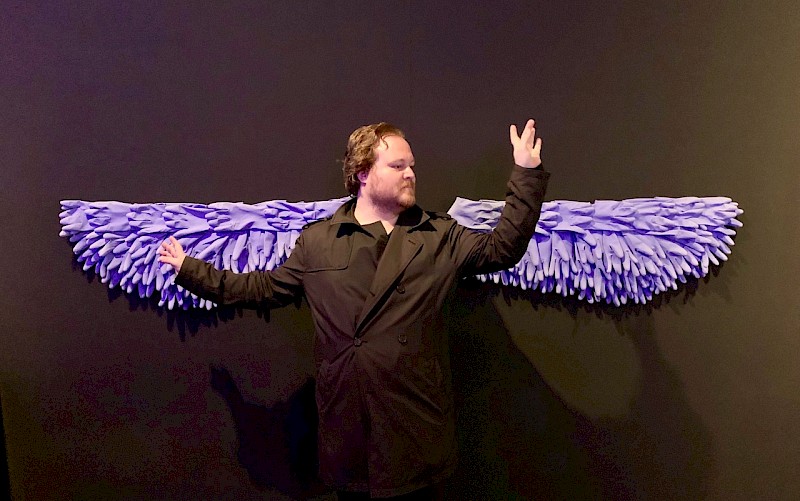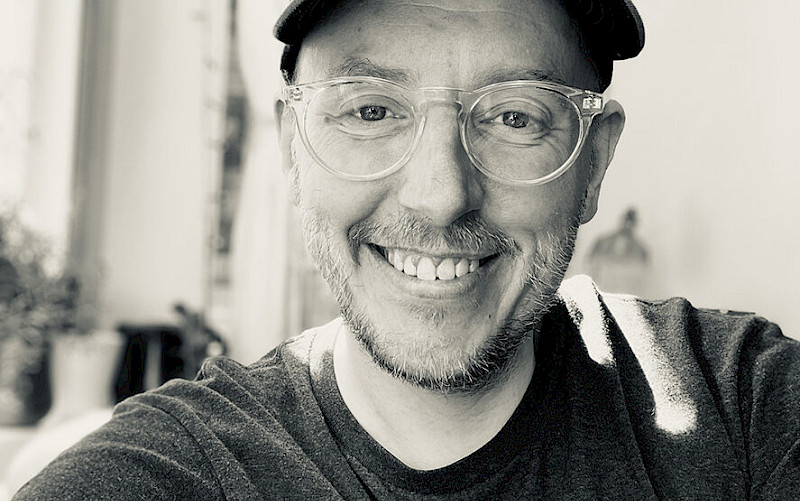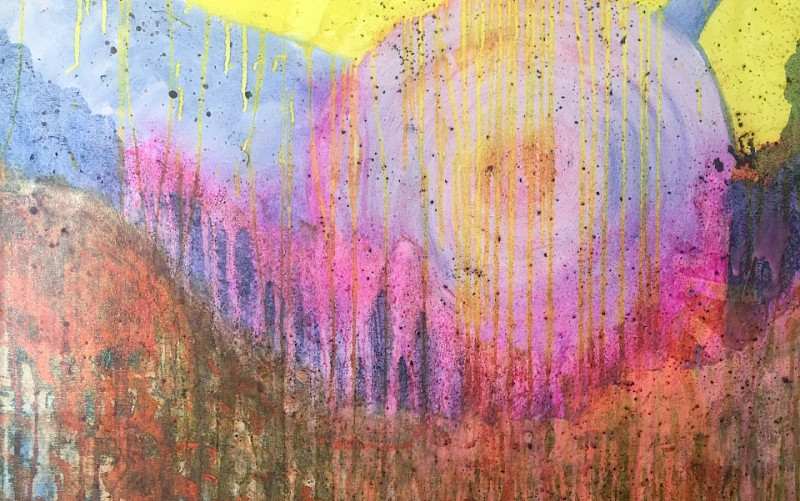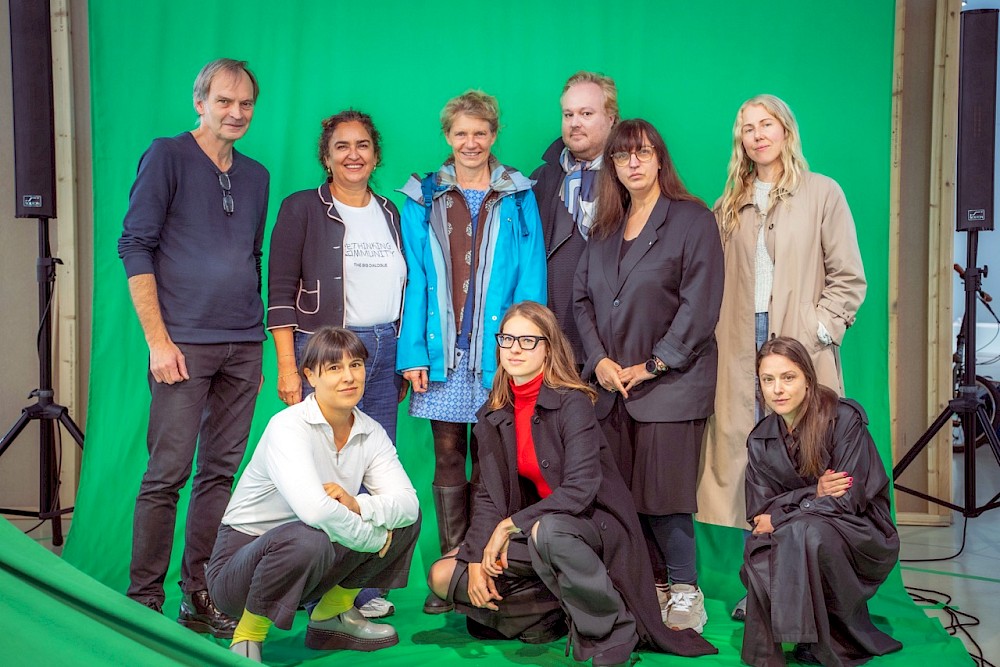
PARC Interview #2 - Participating in a KABK Research Group and the impact on teaching and research practice
In this written interview, three former participants of the KABK Politics of Knowledge research group, Sophie Allerding (2022-2024), Ingrid Grünwald (2022-2024) and Zuzanna Zgierska (2022-2024), briefly reflect on their two-year participation and how the research has affected both their own research practice as well as their teaching or coordinating practices at KABK.
The Politics of Knowledge (POK) Research Group gives space to ‘unusual’ forms of knowledge & research methods
Every year, the University of the Arts The Hague (HdK) gives tutor-researchers and non-teaching staff of the Royal Academy of Art (KABK) and the Royal Conservatoire (KC) a financial opportunity (0.2 FTE) to develop their own research project. These research projects are guided by a lector in the constellation of a research group.
The two-year research group ‘Politics of Knowledge’ (POK 2022-2024) is such an example. Led by the then KABK lector of the Lectorate Theory and Practice and still current PhDArts director Anke Haarmann of the Academy of Creative and Performing Arts (ACPA) of Leiden University, the POK research group was concerned with the subject of the acquisition of knowledge.
Anke Haarmann first explains the relevant focus: expanding knowledge production and giving space to unusual forms of knowledge and research methods. According to Haarmann, this is an indispensable subject as the classical, traditional forms of science, with their regulations, control and exclusion mechanisms, still exclude other forms of knowledge.
But this temporary research constellation was not only about breaking through the rules of discourse or trying out different methods. Its also brought together researchers from different disciplines and backgrounds; in this case, from graphic design to philosophy, from textile labs to cultural studies, from media arts to literature. These differences converge distinct practices, expertise and questions in the group. The input and feedback from others encourages each member to re-think and re-search differently and to re-justify their initial research.
Zuzanna Zgierska, artist-researcher and teacher of Theory in Practice
Zuzanna Zgierska, an artist-researcher working at the intersection of ArtScience, Transmedia Storytelling and Digital Culture, and teacher of Theory in Practice at the KABK, explains that the thematic focus of the group on challenging conventional epistemologies through practice-based research could not be more urgent in the current socio-political and techno-economic contexts. There is, besides, an urgent need to strengthen and expand the position of research within the structures of the KABK.
The research group as a platform for cross-pollination and interdisciplinary exchanges
Her research, titled Matter Theater, is a case study of meteorite fragments extracted from Inugguit Nunaat in Greenland by Danish colonists and 19th-century North Pole explorers. Besides the invaluable benefits of being given the time to conduct the work and the peer feedback to jolt its trajectory, Zgierska most cherished the fact that the POK group became a platform for cross-pollination for her (teaching) practice— not only within the group itself but also with the public beyond the KABK. The interdisciplinary exchanges and engagement complemented her practice that bridges science, technology, and storytelling — domains of knowledge production that usually remain disjointed.
Being associated with the POK research group has added a layer of gravity and complexity to her work. The blurring of the disciplinary and, thus, epistemological boundaries continues to drive her teaching practice, promoting an inclusive yet playful approach to research.
The research group as an opportunity to reach new audiences for research
During the first year of the research group, Zgierska organised and hosted a panel discussion during the first KABK/KC/ACPAJoint Research Day 2023 with (1) Greenlandic anthropologist Miyuki Daorana on Indigenous landscape imaginaries, and (2) with Congolese human rights lawyer and researcher Gracia Lwanzo Kasongo on immaterial restitution modelled through Kasàlà storytelling. Her expanded cinema project Out of Focus, co-directed with tutor-researcher Louis Braddock Clarke, provided prompts and props for the conversation. Contextualising the research and the conversations within this public event, it allowed students and staff to mix with visitors from Leiden University, the KC, and an external public.
A similar public exchange happened at Framer Framed in Amsterdam in September 2024 when the POK research group published its joint reader during the closing event of the 'Really? Art and Knowledge in Time of Crisis' exhibition.
Zgierska explains that these confluences have given her the opportunity to invite new audiences to engage with her projects in a relevant context, bringing visibility to both the work and the KABK as a research institution. It has also given her the credentials to further contact external collaborators and reach other new audiences.
Being associated with the research group has added a layer of gravity and complexity to my research work and given me the opportunity to reach new audiences.
Sophie Allerding, artist, radio activist, photographer and IST tutor
For Sophie Allerding, artist, radio activist, photographer and IST tutor. Her research question during the POK research group was: How can role-playing serve as a method of inquiry and a tool for accessing embodied knowledge that might otherwise go unrecognised within the constraints of our everyday personas? She approached her research through three different methods: (1) by participating in role-playing games to observe and reflect on the knowledge (2) by co-designing role-plays and (3) by hosting a series of radio shows in which she invites fellow artists who use role-play in their artistic practice and research.
Next to the time and means that the POK research group gave her to reflect on her research methods and analyzing observations and outcomes, the other participants of the group provided her with the intellectual support to make her research discursive.
The research group as an opportunity to further develop and establish spaces for collective learning
The part of Allerding’s research and artistic practice that explores role-play and game design in relation to knowledge creation has many overlaps with her teaching practice: in both, she aims to establish spaces for collective learning.
During her two-year research, she discovered concepts from the field of ludology and game studies, which inspired her to approach her practice as an education with the skills she has as a game designer. For instance, the concept of the magic circle, a defined place in space and time where the rules of everyday life are suspended and replaced by the rules of play. Play happens inside the magic circle. In her practice-based research, she experimented with building and maintaining magic circles, which can be challenging with adults who are not used to playing or suspending and replacing the rules of everyday life. The magic circle only works if each participant understands the boundary of the magic circle and helps to maintain it. As soon as one person does not participate or does not understand the rules, the magic circle is broken. It requires guidance to accompany a group in creating and maintaining this magic circle together. Applying this new acquired knowledge on how to create and guide magic circles to designing educational spaces helped her to focus on the learners’ agency and the collective effort of creating a learning experience.
The research group as a space to rethink the interaction between research and educator practice.
Gaining new knowledge around game design also taught her (how) to focus on the creation of an experience, which is a useful approach in creating learning spaces and experiences for students as well. It sharpened, for example, her awareness of the need to design breaks more intentionally and to create room for playfulness. In this way, her participation in the POK research group inspired and encouraged her to think about how her research and educator practice can be better intertwined with each other – and to put this into practice.
My co-participants in the research group have given me the intellectual support to make my research discursive.
Ingrid Grünwald, coordinator of the graphic design department
Ingrid Grünwald has a background in English language & literature and is coordinator of the graphic design department. She works together with Maarten Cornel, a philosophy teacher at the same department, on creating dialogues. They consider dialogue as a method of research, of discovering, testing, andexercising the performativity of speech, of gathering and producing meaning and of exchanging ideas. Grünwald explains her initial awareness of the multiple challenges in having to use the English language in the highly internationalclassrooms at the KABK. She noticed the consequences of how nuance, colour and subtle details simply vanished in the communication between staff and students.
First in the form of ‘English Clubs’, and later (during Covid times 2020-2021) in the form of ‘Big Dialogues’ she and Cornel together created spaces at the department for exchange, in which students and staff could share each other’s worlds on an equal basis to build trust. In these increasingly safe spaces, they often discovered more similarities than differences between one another, and, consequently, together as a group generated new knowledge. In creating a safe space, in which she also sometimes had to show her own vulnerability, they slowly learned how even introvert students started to speak out to discuss their dilemmas within the group.
The research group as a space to develop new toolkits for education
During the two-year research, Grunwald and Cornel created a Dialogue Toolbox with different playful tools that support facilitators in initiating and leading a dialogue between staff and students. They experimented with these tools both within KABK communities, as well as in different European art institutes.
They also each wrote a position paper in which they introduced their different perspectives on how to encourage students to bring their opinions or perspectives on different subjects into the classroom. Lastly, the participation in the POK group gave them the chance to re-develop, redefine, and compare the methods in which they had previously created the ‘Big Dialogues’. It led them to diversify the methods and forms of dialogue as a result of having studied even more theoretical and practical documents from sources such as literature, art, art history and didactics.
Their research has shed more light on an aspect of international art education that is underexposed, including at KABK—one that is critical to fostering social safety, trust, and inclusion in education generally and art education specifically.
While Grünwald has seen significant progress in raising awareness about these issues in her own department, there is still a lot of work to be done. Language sensitivity and the recognition of linguistic diversity are key to realising more equitable and effective educational environments. As she continues to develop her research around this subject, hopefully also with and within other institutions in the Netherlands and abroad, she will remain committed to promoting greater understanding between students and tutors, ensuring that all voices are heard and respected, regardless of their linguistic background. She aims to keep this subject on the agenda of the tutors and work towards a language toolkit.
My time in the POK research group has expanded my knowledge on an aspect of international art education that is underexposed, including at KABK —one that is critical to fostering social safety, trust, and inclusion in our art education.
